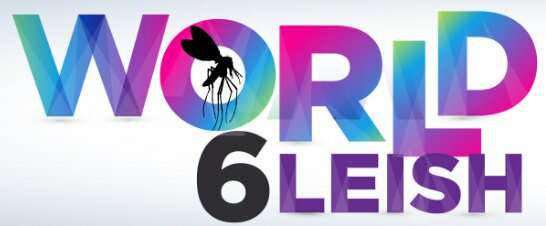
Between the 16th and 20th of May the beautifully ancient city of Toledo was host to 1500 ‘leishmaniacs’ from over 70 countries reunited for the WorldLeish-6 Congress.
WorldLeish is held every 4 years in a leishmaniasis endemic country, Spain being preceded by Brazil, India and Portugal. The Congress aims to unite those working within leishmaniasis research and control, encouraging the exchange of a wide range of expertise and international collaboration. This year, WL6 was co-organized by Madrid’s Instituto de Salud Carlos III (WHO ColIaborating Centre for Leishmaniasis) and the Drugs for Neglected Diseases initiative (DNDi) in Geneva. The congress did not disappoint, with high-quality scientific content and topics ranging from parasite genetics and novel diagnostics, to vector transmission and outbreak epidemiology. The event kicked off with an inaugural speech by Prof. Farrokh Modabber (Senior Advisor at DNDi), who astonished attendees with his 70-year old leishmaniasis scar that remains Leishmania-positive by PCR. One notable theme throughout the event was the complex relationship between human conflict and leishmaniasis, hearing from those working in countries such as Syria, Sudan, Afghanistan and Colombia. The conference ended with a sobering speech by the Colombian Minister of Health, Dr. Alejandro Gaviria, on the impacts of war, drugs and civil conflict on leishmaniasis in his country. Leishmaniasis remains severely neglected, and further research into areas such treatment and diagnostics is sorely needed. However, WL6 showcased the growing community of scientists and policy makers committed to controlling this disease. LSTM was well represented at WL6 by Alvaro Acosta Serrano, Emily Adams, Mike Coleman, Krishanthi Subramaniam, Geraldine Foster, Gala Garrod and PhD students Yasser Alraey, Victoria Austin, Rinki Deb, and Karina Mondragon-Shem.
Written by:
Gala Garrod currently works on the elimination of Leishmaniasis in India using vector control with Michael Coleman. She is about to start a MRC DTP studentship under the supervision of Emily Adams and Steve Torr. Karina Mondragon Shem is in the final year of her PhD supervised by Dr. Alvaro Acosta Serrano, looking into the salivary glycoproteins of sandflies and other medically important arthropods.
